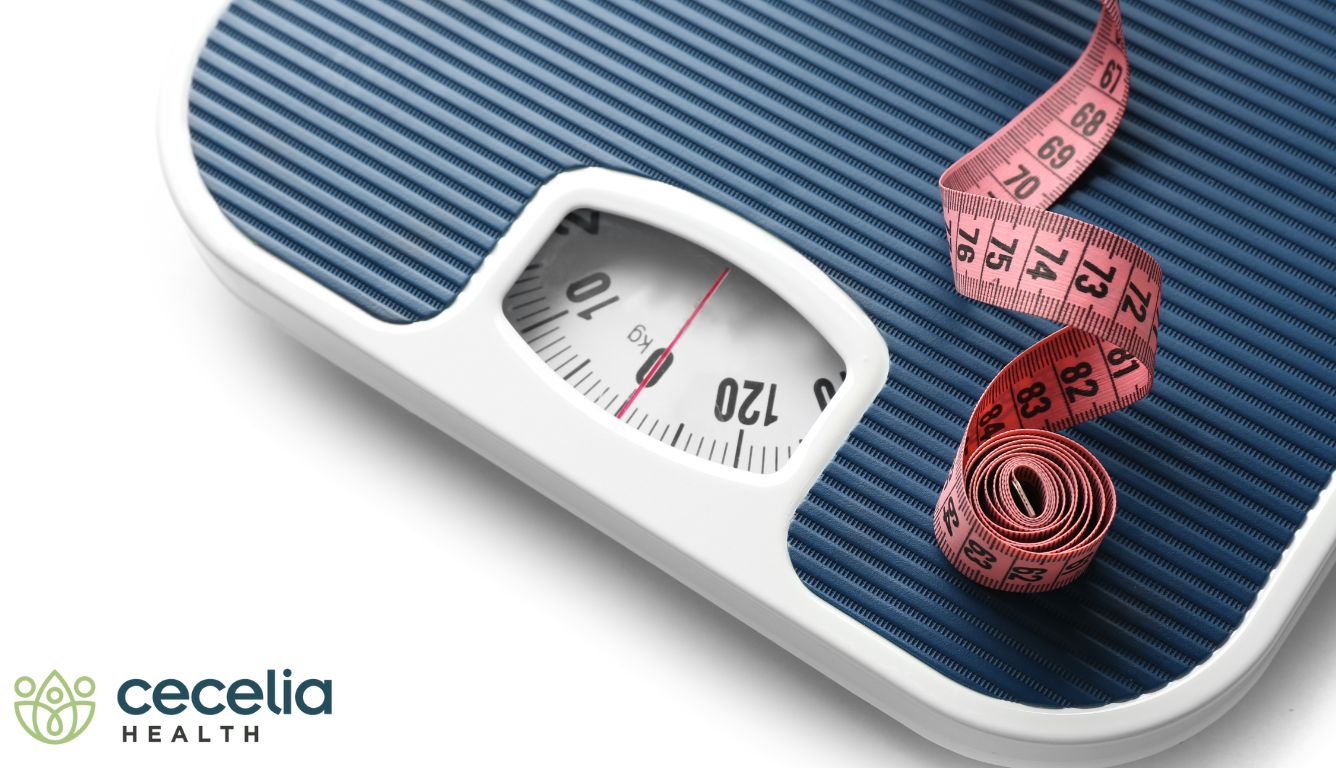Have you been dieting or exercising without seeing the scale go down? A caloric deficit through decreased energy intake and increased energy expenditure should, mathematically, allow for weight loss. But what about when counting calories, calculations and fancy formulas all logically compute a weight loss yet the scale remains the same? Frustration can build and potentially derail healthful habits when we do not see tangible results. Rather than throwing in the towel, there may be a metabolic reason that the body is not following a mathematical reason for losing weight. Hydration status, a change in muscle, increased exercise, or imbalanced hormone levels could actually be root causes of getting stuck when it comes to weight loss. Let’s explore how various hormones affect weight loss.
Key hormones that affect metabolism are leptin, ghrelin, sex hormones, insulin, and even stress hormones such as cortisol. Each of these may influence our fat distribution and metabolism, which is the rate at which our body burns calories for energy. People who are obese may have levels of these specific hormones that encourage abnormal metabolism and the accumulation of fat.
Key hormones in metabolism:
- Leptin: controls appetite and tells the body when it feels full. Levels that are too high may lead to leptin resistance which derails the feeling of fullness and can lead to overeating or weight gain.
- Ghrelin: regulates appetite by telling the body when it is hungry. Low levels may make you feel hungry more often and cause overeating.
- Insulin: responsible for storing blood sugar and utilizing it for energy by regulating how much fat tissue converts to energy. High levels of insulin can lead to insulin resistance which may cause weight gain.
- Cortisol: releases from the adrenal glands in response to stress. Feeling over-extended or lacking coping mechanisms for emotions will lead to excess amounts of cortisol in the bloodstream which is correlated with an increase in overeating.
- Estrogen: promotes the storage of fat for healthy reproduction. When levels begin to decrease or the body has too little estrogen, weight gain often results.
Many of these hormones can be better balanced by our food intake. Micronutrients in whole food sources help the hormones to function properly including adequate amounts of magnesium and vitamin D. High fiber foods will help to balance hormones by creating a feeling of fullness. Adding protein to meals increases satiety and improves leptin sensitivity. Adding healthy fats to meals such as omega-3 in fatty fish, chia/flax seeds, and nuts can boost leptin function and regulate ghrelin. Having moderately sized meals can aids in regulating insulin. Reducing sugar intake and restricting carbohydrate intake can help keeps insulin levels under control as well.
Activity greatly helps to regulate our hormone levels. The mood enhancing hormones that exercise releases, such as endorphins, directly combats high cortisol levels. Going for a walk or exercising after a meal will allow the body to use the sugar from that meal, instead of storing it. Insulin levels will remain lower when going for a walk or exercising after a meal by using the new blood sugar up right away versus calling upon the insulin to store the energy to be used later on. Exercise may also reduce estrogen levels in obese women.
Other ways to regulate hormones include medications that enhance the natural pathways of ghrelin, leptin, and insulin. Medications that contain similar compounds to glucagon-like peptide-1, will enhance the balance of blood sugar and help with satiety by slowing down digestion and decreasing hunger. Additionally, medications that mimic glucose-dependent insulinotropic polypeptide will help stimulate insulin release which also aids in decreasing hunger and increasing satiety.
Hormone imbalance as it relates to weight loss is a complex topic that requires close attention to how the body responds to foods and mealtimes. Pay attention to how your body responds to foods and meals and aim to make healthful changes to regulate hormones or consider starting a conversation about hormones and weight loss at your next appointment with a health care provider.
